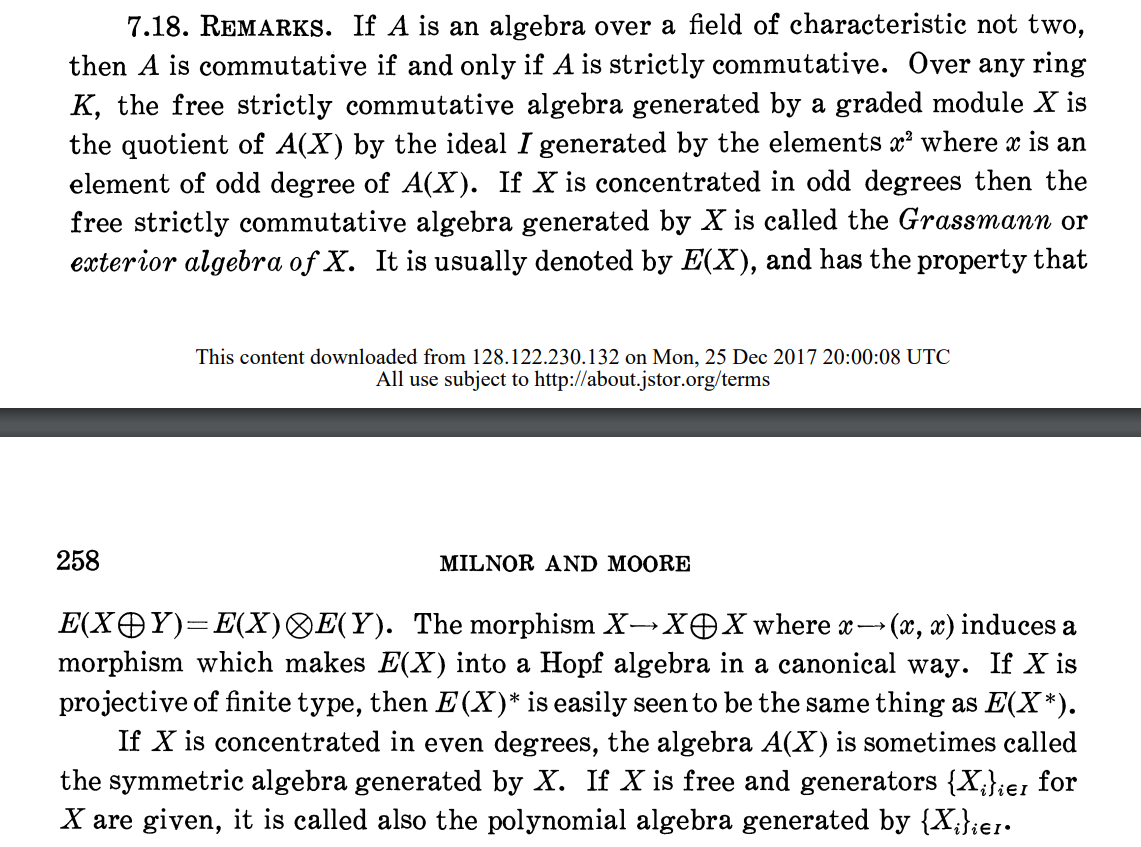Theorem: For any compact abelian group $G$, the homogeneous component $% H^{2}\left( B_{G};% %TCIMACRO{\U{2124} }% %BeginExpansion \mathbb{Z} %EndExpansion \right) $ of degree $2$ is naturally isomorphic to the character group $% \widehat{G}$. If $G$ is connected, then the entire cohomology algebra $% H^{\ast }\left( B_{G};% %TCIMACRO{\U{2124} }% %BeginExpansion \mathbb{Z} %EndExpansion \right) $ is the symmetric $% %TCIMACRO{\U{2124} }% %BeginExpansion \mathbb{Z} %EndExpansion $-algebra $P\left( \widehat{G}\right) $ generated by this component of homogeneous degree $2$.
Observation: If $G$ is a compact connected abelian group and $N$ any closed normal subgroup, then the quotient morphism $q:G\longrightarrow G/N$ induces an injection $\widehat{q}:\widehat{G/N}\cong N^{\bot }\longrightarrow \widehat{G}$ by Pontryagin Duality with annihilator $N^{\bot }$ of $N$ in $% \widehat{G}$.
Someone says that the symmetric algebra functor $P$ preserves inclusions, we have $P\left( N^{\bot }\right) \subset P\left( \widehat{G}\right) $, and so $% H^{\ast }\left( q;% %TCIMACRO{\U{2124} }% %BeginExpansion \mathbb{Z} %EndExpansion \right) :H^{\ast }\left( B_{G/N};% %TCIMACRO{\U{2124} }% %BeginExpansion \mathbb{Z} %EndExpansion \right) \longrightarrow H^{\ast }\left( B_{G};% %TCIMACRO{\U{2124} }% %BeginExpansion \mathbb{Z} %EndExpansion \right) $ is injective.
Another person says that is not true that the symmetric algebra functor $P$ preserves inclusions.
Which one of these is correct? That is does the symmetric algebra functor $P $ preserve inclusions?
Edit


